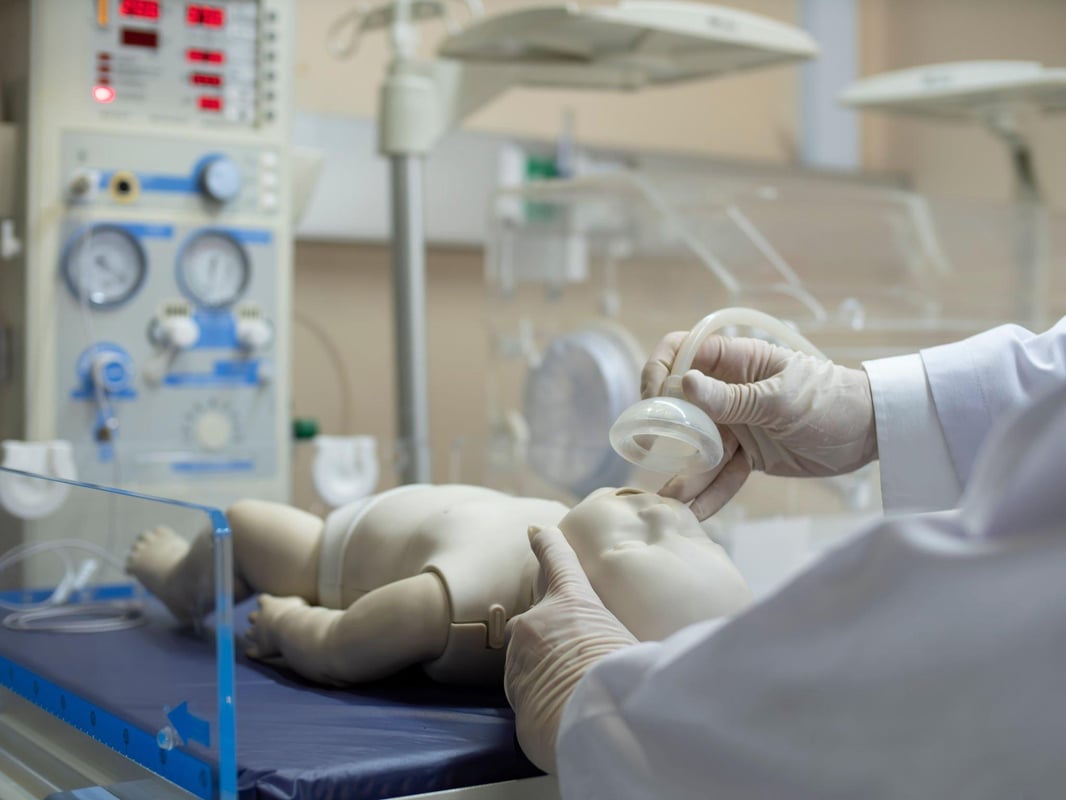
Financial aid (may be available)

Financial aid (may be available)

Financial aid (may be available)

Financial aid (may be available)
$276 total
$2,075 total
$270 total
$410 total
$365 total
$150 total
No cost info
$285 total
$150 total
No cost info
Are you considering a career in healthcare and specifically in Pediatric Advanced Life Support? Are you looking for PALS classes near Jackson? This blog post will provide comprehensive information on what PALS is, the training requirements, what to expect from the classes, the certification process, how to find related jobs and other classes you can take after becoming a PALS certified professional.

Pediatric Advanced Life Support (PALS) is a critical care specialty designed to equip healthcare professionals with the skills and knowledge necessary to respond to emergencies involving infants and children. PALS covers a wide range of medical scenarios, from respiratory distress and cardiac arrest to trauma and sepsis. Healthcare providers, including doctors, nurses, paramedics, and emergency medical technicians can benefit from PALS training.
To enroll in a PALS course, you must have a basic understanding of medical terminology and procedures. It's also necessary to have foundational skills in cardiopulmonary resuscitation (CPR) and advanced cardiovascular life support (ACLS).
Here are a few things to consider:
Advanced Cardiovascular Life Support (ACLS).
Course Duration: Most PALS courses range from one to three days, depending on the level of certification and the institution offering the training.
Course Content: The curriculum typically includes theoretical instruction and practical application, covering topics like pediatric emergencies, systematic approach to pediatric assessment, and effective resuscitation.
Training Venue: Look for a training venue that offers a conducive learning environment. This should include well-equipped facilities and experienced instructors.
When choosing a PALS class, its essential to consider certain factors. The class should be accredited, and the instructors should be experienced and well-qualified. The curriculum should be comprehensive, covering all areas of PALS, and the class should offer hands-on practical training.
A typical day in a PALS class starts with a lecture or discussion on a specific topic. This could be anything from recognizing and managing respiratory distress to understanding shock in children. After the lecture, you may participate in simulations of pediatric emergencies. Finally, there's usually a debriefing where you can ask questions and reflect on your performance during the simulations.
The certification process for PALS involves completing the course and passing the final exam. The exam often includes a written test and a practical assessment, where you'll demonstrate your ability to manage a pediatric emergency.
Once you're PALS certified, you may find job opportunities in various healthcare settings, such as hospitals, clinics, and emergency medical services. You could work as a pediatric nurse, paramedic, or emergency medical technician. You can check job listings on healthcare job boards, network with professionals in the field, or use platforms like Dreambound to find suitable job opportunities.
After becoming PALS certified, there are several related courses you can take to further your skills and knowledge in healthcare. These include:
Advanced Cardiovascular Life Support (ACLS): This course builds upon the knowledge and skills acquired in PALS. It focuses on the management of cardiovascular emergencies in adults.
Neonatal Resuscitation Program (NRP): This course is designed for healthcare professionals involved in neonatal care. It teaches the principles of neonatal resuscitation.
In the ever-evolving field of healthcare, continuous learning is key. After becoming PALS certified, it's important to keep up-to-date with the latest practices and guidelines in pediatric emergency care. This can be achieved through seminars, webinars, and refresher courses.
Simulation plays a crucial role in PALS training. It allows learners to practice their skills and decision-making abilities in a safe and controlled environment. The use of mannequins and simulation software provides a realistic representation of pediatric emergencies, enhancing the learning experience.
PALS training is particularly significant in rural areas, where access to pediatric emergency care may be limited. PALS certified professionals in these areas can provide initial emergency care to critically ill children, potentially saving lives.
Becoming PALS certified can open doors to career advancement opportunities. You may be able to take on more specialized roles or even leadership positions in your healthcare setting.
PALS certification is a valuable asset for any healthcare professional who regularly interacts with children. It's not just about gaining knowledge - it's about being prepared to take action when a child's life is at stake. Whether you're a seasoned healthcare professional or just starting your journey in the field, PALS training in Jackson can equip you with the skills and confidence needed to make a difference.
Remember to check out the various vocational training programs in Mississippi through Dreambound, such as becoming a respiratory therapist or a certified medication aide to further your career in healthcare.
Dreambound has written many guides to help you understand what it takes to get this certification. If you're curious about the process or requirements in other states, check out our other guides below:
Thinking about a potential career transition? Dreambound offers detailed guides to help you with making an informed decision. Dive in below:
Dreambound's platform allows prospective students to find the right educational program for them through searching, filtering, and connecting with our extensive selection of career & technical education partners.
Dreambound has over 70 programs across healthcare, technology, business, and industrial trades. This includes programs such as Medical Billing, Cybersecurity, and welding.
Some of our schools offer financial aid for those who qualify. Many others offer payment plans, where you can pay the cost of class over time.
Yes, Dreambound offers many online programs. On Dreambound's search, you can filter by online, in-person, and hybrid (part online, part in-person).
Dreambound is completely free for you to use! We are supported by schools and organizations who pay to advertise on our website, so we can offer all of our career resources for free.